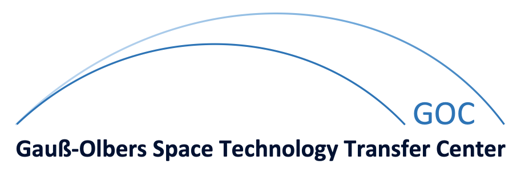Robust Link Adaptation in Coded OFDM Systems
| Author: | C. Bockelmann |
| Abstract: | With the growing data rate demand in today’s society driven by an ever present internet, video streaming and quickly growing smartphone usage, the optimization of communications systems gets increasingly important. So-called Link Adaptation concepts are usually applied to adapt the signal at the transmitter to the channel in order to use the channel’s effect constructively rather than correct its destructive influence on the signal. However, traditional Link Adaptation schemes do not consider channel coding in their design. Still, channel codes are a very important and ubiquitous component in nearly all digital systems, which effects the overall error rate performance greatly. Thus, the aim of this thesis is to devise advanced Link Adaptation concepts that include channel coding into their design to further enhance the performance of multi-antenna OFDM systems. First, the necessary fundamentals are introduced including the overall system model for multiantenna OFDM systems, basics on channel coding and modulation as well as precoding and equalization techniques. Furthermore, the basic assumptions with respect to the transmission channel and channel state information (CSI) are detailed. Then a concise overview of the information theoretic concepts required to formulate the Link Adaptation algorithms and two approximations to describe the coded modulation (CM) and bit interleaved coded modulation (BICM) capacity in closed form, respectively, are presented. The main part of this thesis discusses the problem of Link Adaptation in single antenna OFDM systems under the assumption of channel coding. First, the basic Link Adaptation problems are stated and subsequently modified to include the requirements of channel coded communication systems. A major observation is the importance of the right code rate choice. It is shown that an optimized code rate improves the overall performance greatly and thus has to be seen as a major requirement for Link Adaptation algorithms. The newly developed algorithms show considerable gains for weaker channel codes in comparison to classic Link Adaptation while capacity approaching codes are already too strong to allow for much further gains even with code rate adaptation. Also, imperfect CSI is considered and algorithmic modifications are formulated that achieve gains in robustness and a worst case performance bounded by the non-adaptive case. Afterwards Link Adaptation concepts for multi-antenna OFDM systems are discussed. The application of algorithms for single-antenna systems by decomposition of the channel as well as an extension to non-linear receivers and spatial transmission modes are illustrated. Finally, one Link Adaptation approach is applied to a hardware demonstrator. The obtained measurement results clearly show that also under practical conditions with very basic synchronization and estimation techniques the inclusion of channel coding into the Link Adaptation provides relevant gains. Overall, this thesis provides new insights into Link Adaptation of channel coded systems and the required figures of merit to describe the system’s performance. On the one hand, capacity approximations and statistical properties under the assumption of imperfect CSI are presented and on the other hand, new algorithms to optimize the performance of SISO as well as MIMO systems given perfect and imperfect CSI. |
| Document type: | Ph.D. Thesis |
| Publication: | Shaker Verlag, ISBN 978-3-8440-0913-2, Bremen, Germany, April 2012 |
| Index: | 23 |
| Files: | BibTEX |
Last change on
17.04.2012
by
C. Bockelmann
© Department of Communications Engineering - University of BremenImprint / Contact







